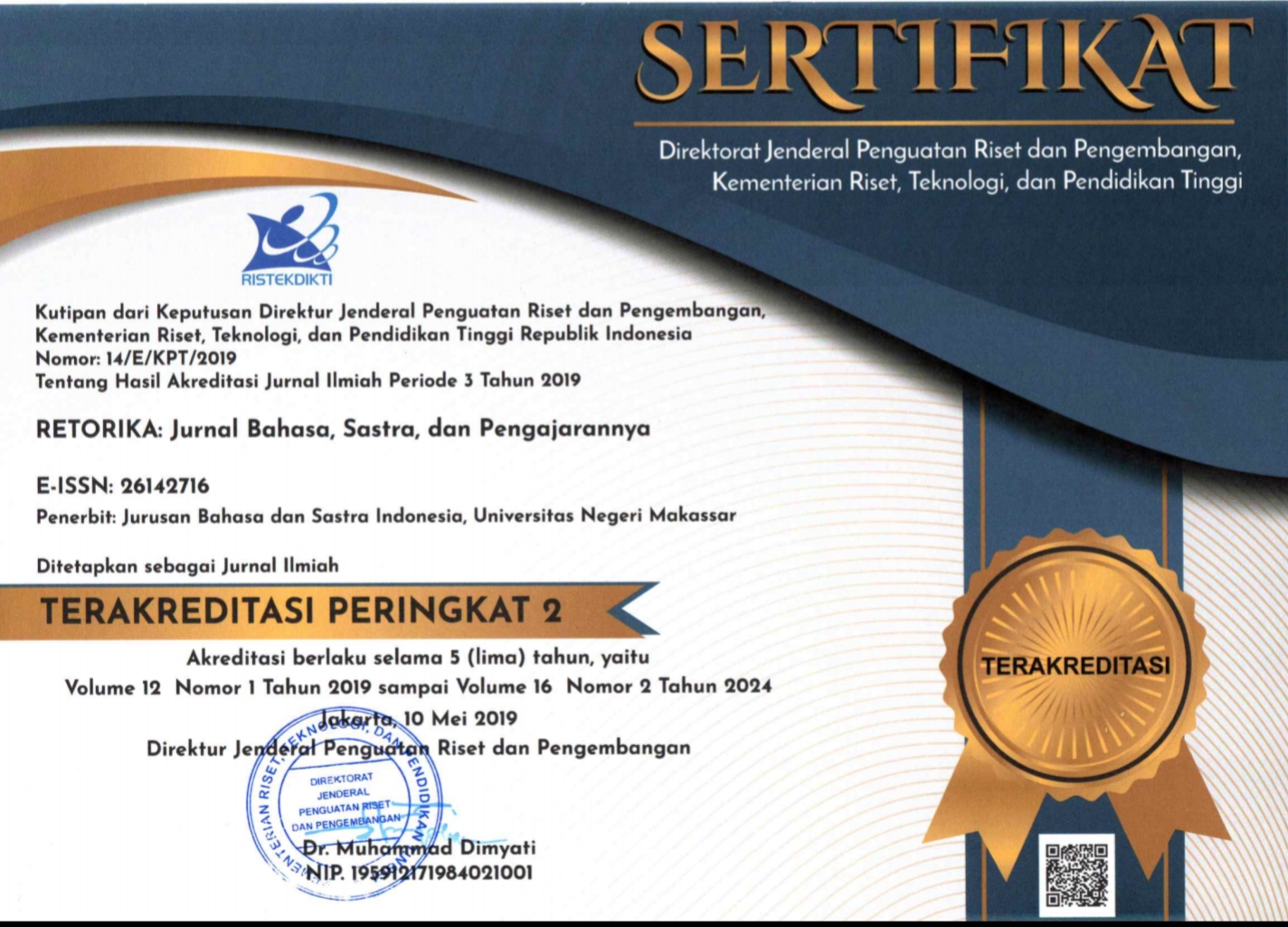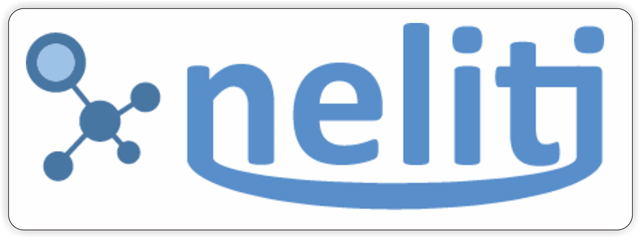JAVANESE GRADED READING BOOKS FOR ELEMENTARY SCHOOL STUDENTS
(1) Yogyakarta State University
(2) Universitas Negeri Yogyakarta
(3) Universitas Negeri Yogyakarta
(*) Corresponding Author
DOI: https://doi.org/10.26858/retorika.v13i1.11321
Abstract
Keywords
Full Text:
PDFReferences
Abidin, Y., Mulyati, T., & Yunansah, H. 2017. Developing literacy learning model based on multiliteracy, integrated, and differentiated concept at primary school. Cakrawala Pendidikan, 36 (2), 156-166.
Ali, R. M., Karim, H. B. B. A, & Yusof, F. M. 2016. Experienced primary school teachers’ thoughts on effective teachers of literacy and numeracy. Malaysian Journal of Learning and Instruction. (13), 43-62.
Boche, B. 2014. Multiliteracies in the classroom: Emerging conceptions of first-year teachers. Journal of Language & Literacy Education, 1 (10), 114-135.
Borg, R.W., & Gall, M. 1989. Educational research: An introduction third edition. New York: Longman.
Çayir, A. 2017. Analyzing the reading skills and visual perception levels of first grade students.Universal Journal of Educational Research, 5 (7), 1114-1116. DOI: 10.13189/ujer.2017.050704.
Curry, D. L., Reeves, E., & McIntyre, C., J. 2016. Connecting schools and families: Understanding the influence of home literacy practices. Texas Journal of Literacy Education, 2(4), 69-77.
Dalman. 2017. Keterampilan membaca. Jakarta: Raja Grafindo Persada.
Dewayani, S. 2017. Menghidupkan literasi di ruang kelas. Yogyakarta: Kanisius.
Fountas, I.C. & Pinnell, G.S. 2008. The continuum of literacy learning grades pre-K-8: A guide to teaching. Portsmouth, NH: Heinemann.
Ghufron, A., Budiningsih, C. A., & Hidayati. 2017. Pengembangan pembelajaran berbasis nilai-nilai budaya yogyakarta di sekolah dasar. Cakrawala Pendidikan, 2 (36), 309-319.
Good, R.H., Simmons, D.C., & Smith, S.B. 1998. Effective academic interventions in the United States: Evaluating and enchancing the acquisition of early reading skills. School Psychology Review, 27, 740-753. (Education and Child Psychology)
Hadaway, N.L. & Young, T.A. 2010. Matching books and readers: Helping english learning grades K-6. New York: The Guilford Press.
Kavale, K., & Forness, S. 2000. Auditory and visual perception processes and reading ability: A quantitative reanalysis and historical interpretation. Learning Disability Quarterly, 23, 253-270.
Mardapi, D. 2008. Teknik penyusunan instrumen tes dan nontes. Yogyakarta: Mitra Cendekia Press.
Memiş, A., & Sivri, D. 2016. The analysis of reading skills and visual perception levels of first grade turkish students. Journal of Education and Training Studies, 8(4).
Muhammadi, Taufina, & Candra. 2018. Literasi membaca untuk memantapkan nilai sosial siswa sd. Jurnal LITERA, 2 (17), 202-212.
Musfiroh, T., & Listyorini, B. 2016. Konstruk kompetensi literasi untuk siswa sekolah dasar. Jurnal LITERA, 1 (15), 1-12.
Nurgiyantoro, B. 2016. Penilaian pembelajaran bahasa berbasis kompetensi. Yogyakarta: BPFE.
Peraturan Pemerintah Daerah Istimewa Yogyakarta 2011, No. 5, Pengelolaan dan Penyelenggaraan Pendidikan Berbasis Budaya.
Richards, J.C. (2015). Key issues in language teaching. United Kingdom: Cambridge University Press.
Sang, Y. (2017). Expanded territories of “literacy”: New literacies and multiliteracies. Journal of Education and Practice, 8 (8), 16-19.
Santrock, J. W. 2009. Educational psychology. (Diana Angelica, Trans). Jakarta: Salemba Humanika. (Original work published 2008).
Saputra, G. A. S. 2013. Enhancing local wisdom throuh local content of elementary school in java, indonesia. Proceeding of the Global Summit on Education. (e-ISBN 978-967-11768-0-1) Organized by WorldConferences.net 614.
Snow, C. E., Burns, M. S., & Griffin, P. (Eds.). 1998. Preventing reading difficulties in young children. Washington, DC: The National Academy Press.
Soesilo. 2004. Kejawen, philosofi dan perilaku. Yogyakarta: Pustaka Jogja Mandiri.
Tompkins, G. E. 2010. Literacy for the 21st century a balanced approach. Boston: Allyn & Bacon/ Pearson.
Tompkins, E.G., & Hoskisson, K. 1995. Language arts: Content and teaching strategies. New Jersey: Prentice-Hall.
Ulusoy, M. 2006. Readability approaches: Implications for Turkey. International Education Journal, 7 (3), 323-332.
Wangid, M.N., Mustadi, A., & Putri A.R. 2018. Fairy story integration for meaningful classroom. Jurnal Cakrawala Pendidikan, 2 (37), 165.
Article Metrics
Abstract view : 486 times | PDF view : 82 timesRefbacks
- There are currently no refbacks.
Copyright (c) 2020 supartinah - supartinah

This work is licensed under a Creative Commons Attribution-NonCommercial 4.0 International License.
Published by:
Department of Indonesian Language, Faculty of Languages and Literature, Universitas Negeri Makassar in cooperate with Asosiasi Dosen Bahasa dan Sastra Indonesia (ADOBSI) and Ikatan Program Studi Pendidikan Bahasa dan Sastra Indonesia (IKAPROBSI).
Address: Department of Indonesian Language Office, DG Building Second Floor, UNM Parangtambung, Daeng Tata Raya Street, Makassar, South Sulawesi, Indonesia
 Email: retorika@unm.ac.id
Email: retorika@unm.ac.id

RETORIKA: Jurnal Bahasa, Sastra,dan Pengajarannya is licensed under a Creative Commons Attribution-NonCommercial 4.0 International License.
















